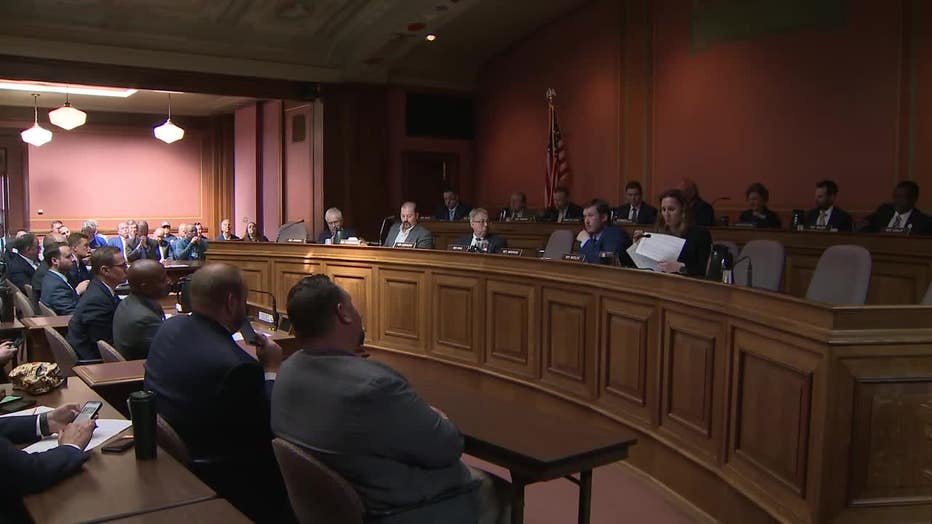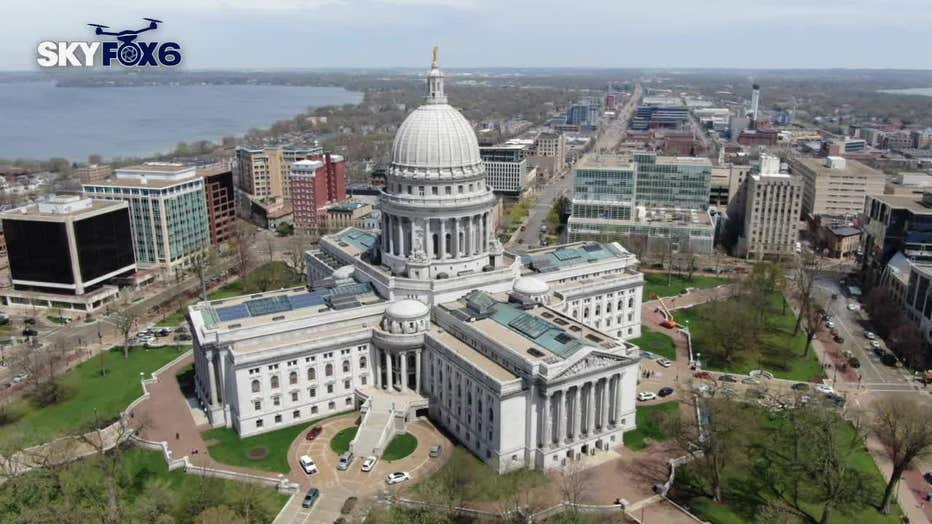Wisconsin shared revenue: Milwaukee leaders discuss plan at Capitol
Wisconsin shared revenue: Milwaukee leaders discuss plan at Capitol
It was standing room only at the Wisconsin Capitol as Milwaukee leaders shared their thoughts on Republican lawmakers' shared revenue plan Thursday, May 4 – which includes a proposed sales tax hike for the county and county.
MADISON, Wis. - It was standing room only at the Wisconsin Capitol as Milwaukee leaders shared their thoughts on Republican lawmakers' shared revenue plan Thursday, May 4 – which includes a proposed sales tax hike for the county and county.
"The city is on a path of catastrophic budget cuts," said Milwaukee Mayor Cavalier Johnson.
Republicans proposed the bill Tuesday. Every community in the state would get a 10% boost of shared revenue. In Milwaukee, it would add $22 million to the city budget. Without action, Johnson said the city is in trouble.
SIGN UP TODAY: Get daily headlines, breaking news emails from FOX6 News
"It will force massive cuts to our police officers, it’ll force massive cuts to our firefighters as well," he said.
The bill addresses Milwaukee's pension problem by imposing a city and county sales tax – up to 2% in the city, and less than 0.4% in the county. It would go to a referendum where residents would vote on it. Johnson asked the Assembly to amend that.

Milwaukee leaders attend shared revenue hearing at Wisconsin Capitol
"I think its important we trust the people that we elected to office to dig into these issues," he said.
The proposed bill includes police changes for Milwaukee, too. That includes requiring Milwaukee Public Schools to hire 25 resource officers. Fire and police chiefs would regain authority over their respective departments as well. Johnson asked the Assembly to enable those changes to be voted on at the local level.
Gov. Tony Evers does not support the way the bill is currently written – promising Thursday to veto it. He said it is not enough and is calling on lawmakers to remove restrictions when it comes to local control. Some lawmakers said, no matter what, it's not going to be a perfect bill. They are still negotiating the final details over the next few days. Republicans want to pass the bill in mid-May.
Plan details
Evers, and many of the local officials who testified, said the current proposal comes with too many restrictions. Those include a ban on public health officials from ordering businesses closed for more than two weeks and cutting aid to communities that reduce the number of police officers and firefighters.
The $1.5 billion in aid to counties, cities, towns and villages would be paid for by tapping 20% of the state’s 5-cent sales tax, an idea Evers has supported.
Under the bill, local governments would see at least a 10% increase in funding, amounting to $227 million. That new money could only be spent on police and fire protection, emergency medical services, emergency response communications, public works and transportation.
"It is not enough resources," Evers said in a statement. "We have the resources to do it. Let’s increase the money that’s going to the locals. And, frankly, also, let’s remove all those restrictions that the legislation was putting on those local folks."

Wisconsin Capitol, Madison
Evers called on the Legislature to send him a bill without limitations on the use of the money.
"Let’s work together to make it happen, and I know we can get it done," he said.
Republican legislative leaders said they were disappointed with Evers’ veto threat and called on him to reconsider.
"It’s very disappointing to come so close to the finish line only to have the Governor publicly issue veto threats because he wants to spend more money," Assembly Speaker Robin Vos and Senate Majority Leader Devin LeMahieu said in a joint statement.
FREE DOWNLOAD: Get breaking news alerts in the FOX6 News app for iOS or Android
The bill would also:
- Prohibit local advisory referenda questions. Many communities in recent elections have voted in favor of legalizing marijuana and protecting abortion rights, votes that don't change the law but are designed to bolster turnout and put pressure on Republicans.
- Eliminate the personal property tax, which is a tax levied on business equipment and furnishings.
- Mandate that local governments approve projects under the state’s land stewardship program that are north of U.S. Highway 8, which runs across roughly the northernmost quarter of the state. Republicans have long raised concerns about such projects that protect the land from future development.
The shared revenue program to fund local governments, created in 1911, has remained nearly unchanged for almost 30 years, despite overall growth in tax revenues, according to the nonpartisan Wisconsin Policy Forum. Shared revenue for counties and municipalities was cut in 2004, 2010 and 2012 and since then has been relatively flat.
The Associated Press contributed to this report.

